Dubai drove a persuasive recovery after travel reopened with a combination of marketing, focusing on value, and expanding its family-oriented offering.
The region has continued to see investment into its hotel stock, building on the recent Expo 2020 event, with its reputation for luxury continuing to inspire, fuelled by the adoption of the latest technology.
Alex Sogno, CEO, Global Asset Solutions, said: “Dubai has been working to diversify its economy away from its reliance on oil and towards the growing global travel sector. Expo 2020 may have been delayed by the pandemic, but the emirate has worked to regain ground and present itself as a desirable destination for all travellers.”
The emirate reported that 1.78 million international tourists visited Dubai in March 2022, exceeding pre-pandemic visitation for the month. For the first quarter, Dubai reported its best performance in two years, with 214% year-on-year visitor growth.
His Excellency Helal Saeed Almarri, Director General, Dubai’s Department of Economy and Tourism, said: “While these critical metrics of Q1 2022 allow us to benchmark our progress, we will seek to broaden Dubai’s global appeal to new and diversified market segments, and focus on encouraging greater length of stay and repeat visitation. And as we move forward through 2022, we will also continually strive to achieve Dubai’s vision to become the most sought-after travel destination and the best city in the world to live in and work.”
Data from Lodging Econometrics reported that Dubai continued to lead the construction pipeline in the United Arab Emirates with 84 projects/24,306 rooms across the hotel spectrum. Hotels opening this year include 25hotels Hotels Dubai One Central, Atlantis The Royal, Taj Exotica, and W Dubai.
Along with diversification, Dubai’s hotels have also moved to adopt many of the technological advances the sector has attracted, driving a more personal and tailored experience.
A study from Google estimated that AI could contribute $320bn to the Middle East economy by 2030, which would be 11% of GDP. The UAE has an opportunity to become a key player in the new global digital economy, through its early investments in AI and are looking to contribute almost 14% of the GDP in 2030.
The hotel sector has started to invest in AI, with that investment accelerating during the pandemic.
Most recently, Sofitel Dubai The Palm announced a partnership with Quicktext, a hospitality specialist in AI and Big data, for its advanced conversational AI, capable of providing instant answers to guest queries 24/7 about any feature of the resort.
Sogno, who is attending the Future Hospitality Summit, held in Dubai 19 to 21 September, added: “Dubai developed a reputation for the most luxurious and glamorous hotels on the planet – money was no object, hotels built on land which hadn’t even been there before; a fresh start for a city which, 200 years ago, was a fishing village of fewer than 1,000 people.”
“As the city has matured as a destination and started to attract a more diverse range of guests, budget and mid-market hotels have come into the region. As befits a forward-thinking region, we are seeing technology embraced across the spectrum.”
“The global operators have also started to make their presence felt across Dubai, with hotels across the ratings segments. While there are now hotels across the price points, there are still some astonishing hotels in development. But for all the helipads, private beaches, and underwater suites, what makes a hotel luxurious is the service and the team behind it. As asset managers in the luxury segment, we are inspired by this ground-breaking emirate and what it can offer the rest of the world’s hotels.”
Sources:
https://mediaoffice.ae/en/news/2022/May/10-05/Dubai-ranks-1-globally-in-hotel-occupancy-in-first-quarter-of-2022-with-82-per-cent
https://www.hospitalitynet.org/news/4110751.html
https://impact.economist.com/perspectives/sites/default/files/google_ai_mena_report.pdf
Post
Portugal Hotel Market Outlook 2024
PORTUGAL’S HOSPITALITY INDUSTRY is experiencing an impressive comeback post…
Post
Know thyself for budget success
“Before you can budget for the year ahead, it is critical that you assess the…
Post
Should hotels refuse to join a club which would have them?
The current battleground for the big hotel chains is not pipelines, but loyalty…
Post
The digital concierge: how can hotels use technology to maximise revenue and customer experience?
More than half of all business trips are now a mix business and leisure – so…
Post
Spanish Hotel Market 2024
SPAIN’S TOURISM SECTOR in 2023 exceeded all initial expectations and surpassed…
Post
Balancing the scale of luxury
Tell someone in the sector your hot new tip is luxury growth and you’ll lose…
Post
The luxury sustainability conundrum
Climate change is one of the most significant challenges society is facing, but…
Post
Failing the AI tech race
Attend any conference over the past decade, and a common theme is the devilish…
Post
From compound stays to compound interest
Back in the days of yore - or, for those who measure time this way -…
Post
Projecting into an AI future
The world of hospitality has seen remarkable changes over the past few decades,…
Post
Bringing strength to soft brands
‘Another day, another brand’ could well be the catchphrase of our sector, but…
Post
The need for CAPEX and creating returns
As an asset manager, it’s my job to create and manage the relationship between…
Post
Budgeting for change pt.2
In the second of our series on the budget approval process, we are looking at…
Post
Budgeting for change pt.1
Each season brings with it change and, depending on the time of year, the…

